
Published on August 7th, 2019 | by Editor

Fastnet Race: Wizard gets overall win
Published on August 7th, 2019 by Editor -->
(August 7, 2019) – An American VO70 has continued its phenomenal winning streak to claim the Fastnet Challenge Cup, the overall prize for the 2019 Rolex Fastnet Race. David and Peter Askew, aboard their VO70 Wizard, came out on top under IRC corrected time, beating French boat builder Nicolas Groleau’s perennial entry on their canting keel Mach 45 Bretagne Telecom by 45 minutes.
This was the Askew’s first attempt at the Royal Ocean Racing Club’s pinnacle 605 nm offshore test, and the first overall victory for the USA since 1989.
“To win the race is unbelievable,” said David Askew upon hearing of their latest victory. “Obviously the Rolex Fastnet Race is one of the premier ocean racing events in the world and has a magnificent history going back way before I was born, and I’m an old guy!”
The Fastnet Challenge Cup is the latest silverware that the Baltimore-based brothers can add to their ever-growing trophy cabinet. A month ago Wizard won the historic Transatlantic Race 2019 and in February claimed the RORC Caribbean 600. Their winning streak started last year when they came out on top in the Gibbs Hill Lighthouse division of the Newport Bermuda Race.

Significantly, Wizard’s success brings to an end the string of Rolex Fastnet Race overall victories by French teams that started in 2013 with Pascal and Alexis Loison and concluded in the last race with Didier Gaudoux’s JND39 Lann Ael 2.
Among maxi boat owners, the Askews are unique. They herald from Detroit and have sailed since they were kids. Once grown up they were part of the Great Lakes big boat sailing scene, competing in the then cutting-edge IOR 50 circuit. They even ran some successful race boats such as a Santa Cruz 70.
“Collectively we have a vast amount of experience,” admits David. “We almost don’t know what we know! But looking back, we have been doing this a long time and know how to put these programmes together.” In 1985 David competed in his only previous Fastnet Race aboard the Frers 55 Jubilation. “At that time I was completely in awe and I always vowed I’d go back,” he recalls.
For more than a decade, the brothers stepped away from sailing when they took over the family’s successful chemical company USALCO, got married and started families. However, the call of the sea proved too great and in the early 2000s David Askew succumbed and bought a J/120. “I coerced my brother into sailing with me,” he continues. “That started the whole process that resulted in us deciding we wanted to go around the world winning races with a VO70.”
While they campaigned their Reichel/Pugh 74 Wizard to victory in many races, notably the Chicago-Mackinnac Race and the Barn Door trophy in the Transpac, the present campaign came about when Franck Cammas’ former Volvo Ocean Race winner Groupama 4 was put on the market by her then owner.
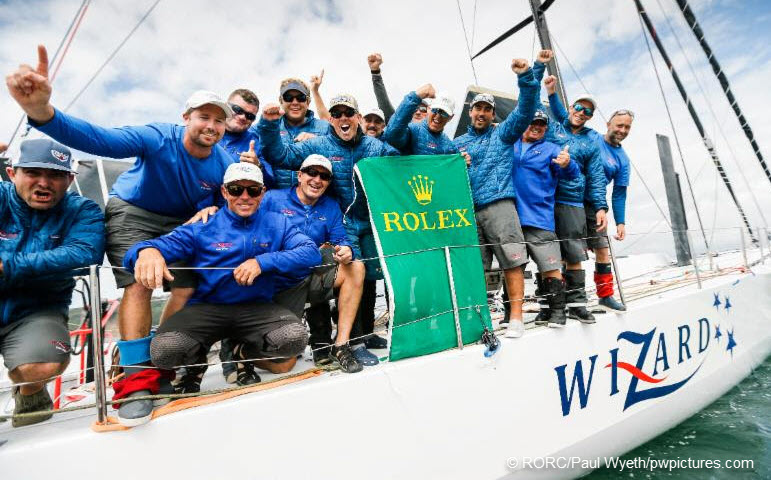
“About five or six years ago we were wanting to do a transatlantic race and trying to get a boat to do it with. It just happened that the best Volvo 70 probably ever built came available in Sydney, so we hopped on it, bought it, did the Hobart Race, and then went from there,” recalls David.
While they didn’t win that Rolex Sydney Hobart, their present incredible winning streak started the next year.
David Askew attributes the Wizard team’s success to putting the right pieces in place. After buying the boat, the decision was made to employ Volvo Ocean Race skipper Charlie Enright as sailing master and bring on board an all-star crew.
They included Enright’s business partner Mark Towill, with whom he has run two Volvo Ocean Race campaigns, plus former Volvo Ocean Race winners Richard Clarke and Rob Greenhalgh, and leading Australian navigator Will Oxley.
“I credit it really to everything – the organization, the capabilities of Charlie Enright, the collective experience of all the crew as well as the two owners and selecting the right tool for the job – the Volvo Open 70,” continues David Askew. “It’s the sum of all the parts that contributed to the result. Plus a little bit of luck!”
Of their Rolex Fastnet Race win specifically, David says: “Honestly, I never really thought about winning it, or even doing well – just completing the race is a victory of sorts.
“Obviously we put together the best team that we could assemble. We have a boat that we’ve been campaigning now for two years, that we bought specifically for the purpose of trying to win all the major ocean racing events in the world. And we’ve been having tremendous success.”
Compared to the previous events they have competed in, David says the Rolex Fastnet Race is one of the most difficult, if not the most difficult, to win.
“Just to win IRC Zero – that exceeded my expectations, just because of the sheer amount of competition. We come over here from the States to have one go at it, but other people (from New York for example…) are doing this race year in, year out and have a lot of experience.
“[Our winning streak] can’t last forever – you just try to make it last as long as you can. That being said, we definitely have a formula. We decide what we want to do and then find the right machine and the right people to get it done.
“As to the Rolex Fastnet Race, Wizard did a fine job keeping Rambler 88 and SHK Scallywag in their rearview mirror for longer than their shorter waterline length should have allowed. Navigator Will Oxley made prompt and intelligent interpretations of what the strange weather was doing in the English Channel, and, as Oxley himself puts it, the crew work was just excellent. Every manoeuvre was done really well. We used all the sails in the right order. We never had the wrong sail up.
“Charlie made an excellent call that we change directly from the masthead Code 0 to the J2, so we were under-wicked heading out to the Rock for the first hours, but then we didn’t have to do the change from the J1 to the J2. On these boats they are hanked sails and trying to get rid of the J1 and put the J2 up in those conditions is very difficult so that was another key moment.”
From here Wizard heads for the Rolex Middle Sea Race to see if she can apply her winning formula to that race.
Race details – Entry list – Results – Tracker – Facebook
Editor’s note : We wanted to recognize the efforts made by the Royal Ocean Racing Club and their communication team in chronicling this biennial event. It is no glamour cruise, yet it attracts participation that other offshore races would dream about, and it is these stories that create the interest this race enjoys. For all the updates, click here .
Background : The biennial 605 nm Rolex Fastnet Race is organized by the Royal Ocean Racing Club (RORC) with just 7 boats sailing the first race in 1925. A record-sized fleet of 362 boats started the 2017 race, 12 more than 2015. The 2019 race, which has 388 starters, was the 48th edition when it set off on August 3.
Reliving the maelstrom : Forty years ago – August 1979 – a rogue storm savaged the Fastnet Race fleet, wrecking boats and claiming the lives of 15 sailors. Roger Vaughan was on board the maxi Kialoa, owned by the late Jim Kilroy, for the race that crippled the fleet of over 300 boats.
Vaughan wrote briefly about his experience in an op-ed for the New York Times (9/2/79), but after an editor read it, he was asked to keep going, turn it into a book, which takes the reader on board and focused on how a near-death experience at sea effected various members of the crew, including himself.
Originally published in 1980, Vaughan marks the 40th anniversary of that most famous Fastnet Race by reissuing the book, FASTNET: ONE MAN’S VOYAGE, which can be found on Amazon… click here .
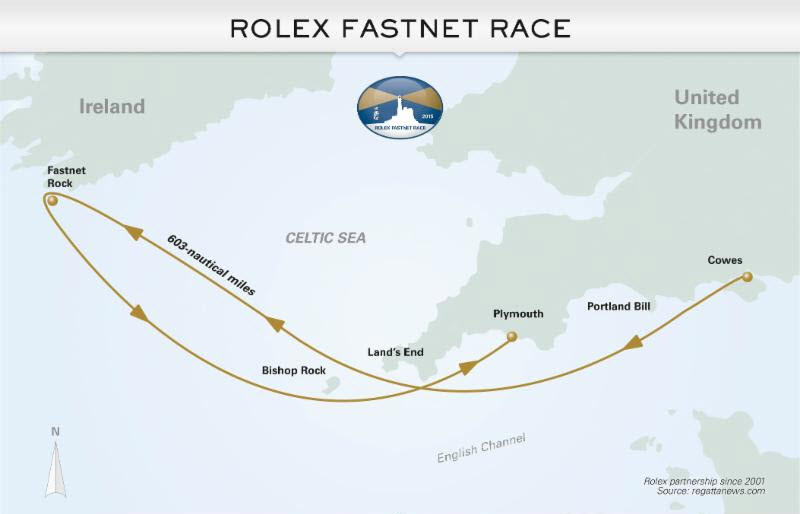
Source: RORC

Tags: Fastnet Race
Related Posts
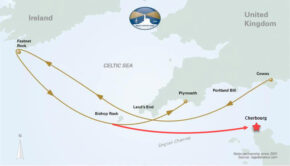
Keep packing passport for Fastnet Race →
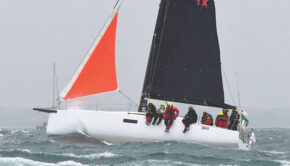
What we do for fun →
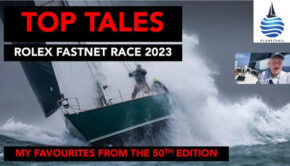
VIDEO: Stories from the Fastnet Race →
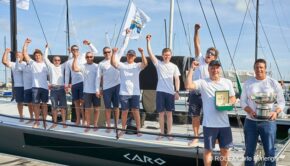
Overall winner set for 2023 Fastnet Race →
© 2024 Scuttlebutt Sailing News. Inbox Communications, Inc. All Rights Reserved. made by VSSL Agency .
- Privacy Statement
- Advertise With Us
Get Your Sailing News Fix!
Your download by email.
- Your Name...
- Your Email... *
- Name This field is for validation purposes and should be left unchanged.

- AROUND THE SAILING WORLD
- BOAT OF THE YEAR
- Email Newsletters
- America’s Cup
- St. Petersburg
- Caribbean Championship
- Boating Safety
- Ultimate Boating Giveaway


Askews, Brothers of the Watch
- By Gary Jobson
- Updated: May 26, 2020
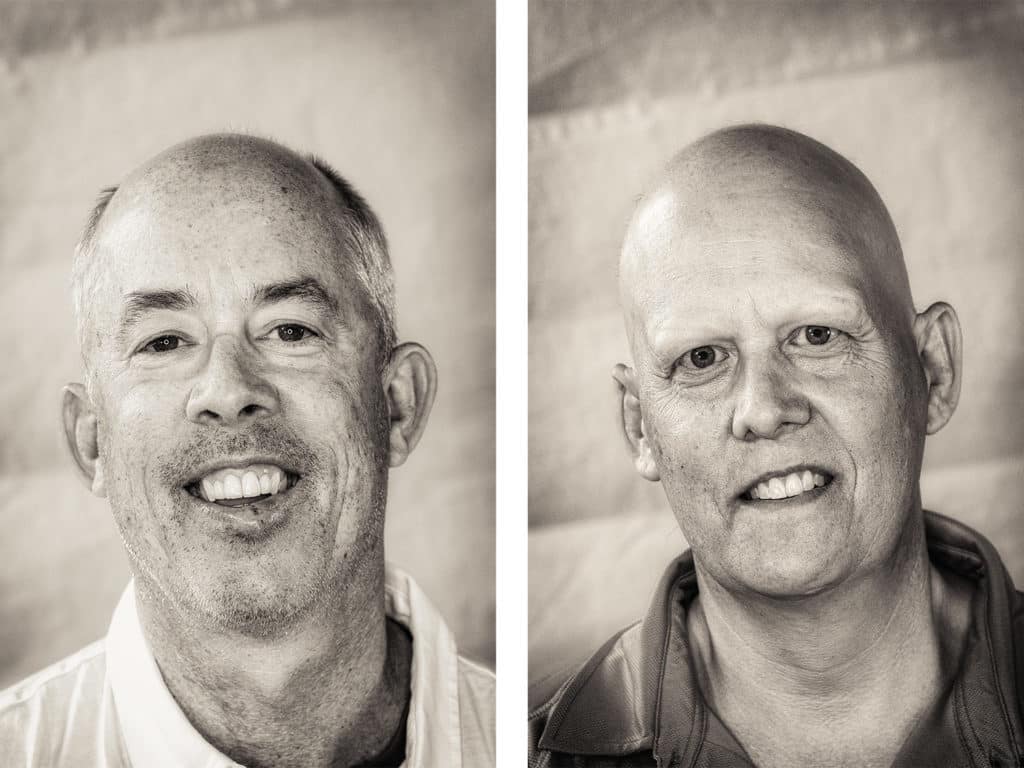
Dave and Peter Askew —brothers in their mid-50s, with two years between them—have been distance racing for decades, their accomplishments on the water blossoming in both scale and caliber. Over the past two years, however, the Askew brothers have progressed well beyond the relative comfort and familiarity of the Great Lakes, questing top results in each and every one the premier international offshore races. To do so, the brothers recruited a crew deep in experience, acquired a used Volvo 70, and laid out an ambitious plan to win all the Northern Hemisphere’s greatest races: the Caribbean 600, the Transatlantic Race, the Rolex Fastnet Race and the Rolex Middle Sea Race. They came close, winning three of four (a drifter of a Middle Sea Race was not Volvo 70 conditions).
“Winning the Fastnet was—by far—the biggest sailing event of my entire life,” Peter says. “I remember watching it as a kid. It was always a race I paid attention to.” He can now be reminded of the race every time he looks at the inscription on the Rolex timepiece he now wears proudly on his wrist. “It’s a point in my career I will never forget.”
I first met the Askew brothers when we crewed for Bill Martin in the 1984 Canada’s Cup. As youngsters, they’d raced Lasers, Interlakes and Flying Juniors, but that year, they were in college and spent the summer working on Martin’s Two-Tonner, Stars & Stripes . We won a grueling challenger trials but lost in the final match. They were enthusiastic and reliable crewmates, and over the next few summers, they delivered and worked on raceboats throughout the Great Lakes.
David Askew considers his experiences with Bill Martin as his true formative years, as well as the stepping-off point for a long-term sailing career. “The next thing I know, I’m racing with all these guys I idolized as a kid,” he says. “I was in the candy store, and I wanted to be the best sailor I could.”
He laughs now, he says, because he never wanted to own his own raceboat. Why would he when had easy access to top boats raced by top-shelf crews?
The Askews had solid sailing backgrounds before launching their business careers. In 1980, their father, Lawrence Askew, founded USALCO, a chemical company that processed aluminum and other materials used to purify the lake waters of the Midwest. The company eventually moved to Baltimore and grew. The brothers each graduated from the University of Michigan, with David earning a mechanical engineering degree and Peter a degree in anthropology. Both married at relatively young ages, raising families as they built the company. Competitive-sailing aspirations shifted to the back burner.
They’re now equal partners in their father’s company, which currently employs 250 people and produces more than a million tons of chemical products per year. The company’s move to Baltimore allowed David to settle in Annapolis, closer to the action. Ultimately, it was David’s wife, Sandy, who suggested they get back into sailing.
“We should get a boat because our kids ought to be brought up as sailors,” she suggested.
David agreed, of course, and they bought a J/120. “That’s our humble beginning,” he says. “We just kind of progressed through bigger boats. It was always a family thing.”
When they’re not on the helm, they’re grinding winches or trimming sails. Sheets are never cleated.
They campaigned a J/122 before eventually making the grand-prix leap to the TP52. “My brother had more time to sail with me,” David says. “We had a dream as kids of doing the big ocean races. We knew we needed the right boat.”
They then set their sights on the Transpac Race and acquired Bella Mente , built in 2008 by American yachtsman Hap Fauth. “[He’d] done everything to it to make it a good downwind boat for the Transpac,” David says.
In their first try, they won the Barn Door Trophy, awarded to the first boat to finish. “[At the time] we were building up a pretty good crew who were always keen to do long-distance races, so in fall 2017, we thought we needed to get a Volvo 70,” David says.
They purchased the highly optimized Groupama 4 , winning boat of the 2011-2012 Volvo Ocean Race, skippered by Frank Cammas. “Relative to the cost of building a new boat, it was cheap,” David says. “The 70 is the perfect size. The real expense is campaigning the boat and hiring the crew.”
With the exception of themselves, they now race with a team of 13 professionals and specialists. “On a boat with so few people, everyone on the boat has to work well together,” David says, “although everyone has their little quirks. It’s like a small military squad. They can all do each other’s jobs, but they specialize in certain areas, like mechanical systems. They can keep a boat going no matter what happens.”
Where do the Askew brothers fit into the squad? “Our main job is to make sure the boat gets to the starting line,” David says, with a laugh. “We write checks.”
Kidding aside, he says they both steer, spending about half of each watch on the helm. When they’re not on the helm, they’re grinding winches or trimming sails. Sheets are never cleated. “We work the boat really hard,” David says. “We have to be in some kind of shape to grind winches. If someone is missing from the handles, you are expected to jump in there.”
For Wizard ’s 2019 trophy haul, the crew roster included Volvo Ocean Race veterans Charlie Enright and Mark Towill. Will Oxley, of Australia, a highly experienced veteran of the offshore game, is the team’s navigator. Richard Clarke, of Canada, an Olympic Finn sailor and round-the-world veteran as well, is also a key member of the team. Roy Pat Disney and Ralf Steitz joined the Wizard crew for the Fastnet Race.
“The number of people we have sailed with over the years has been absolutely amazing,” Peter says. “It’s special to sail with guys with so much experience, guys who are at the top of their game.”
Naturally, surrounded by such experience, the ride is often thrilling, Peter says. “After three days of going 28 knots, you get a little frazzled, but you never feel out of control,” he says. “We take a reef pretty early in 20 to 22 knots.”
His brother has a different take: “The amount of energy this boat has is amazing. I couldn’t even look up at the top of the mast when we were reaching along in 30 knots of wind because it was moving around like I’ve never seen.”
During the 2018 Rolex Sydney Hobart Race, David recalls the adrenaline of racing in 30 knots: “The sea state was all screwed up, and we were planting the bow into the waves. Our Number 3 [headsail] exploded. Everyone looks around and says, ‘Hmm, maybe that’s telling us something.’ The next thing might be the rig, so we throttled back. To me it seemed like the boat might explode. Literally. I couldn’t understand why the boat did not break; it just kept going.”
David admits it took several more races to finally feel comfortable with the energy in the boat and its ability to withstand punishing conditions. “The guys who race these boats around the world understand this, and that is why they are able to do 600-mile days,” he says. “With this type of sailing, the weakest part of the boat is the crew.”
While the Volvo 70 was essentially a one-design purpose-built boat for the round-the-world race, the Askews have had to adapt it to handicap-rating rules, which is a challenge unto itself, given the different rules used by events. “For different regattas we use different rules,” David says. “We have different modes regarding sail selection. For example, if we are going to be doing windward-leeward courses, we will sail with a masthead code zero; but if we are going into the North Atlantic, then we have a lot of reaching sails. We have a thing called a ‘J zero’ that we put out on a strut to leeward. In ORR, we can’t use it. I wish there were just one handicap-rating rule, but it seems every part of the world has its own rule.”
The Askews and their team have received several honors for their achievements. World Sailing presented them with the 2019 Hempel Team of the Year Award; the New York YC awarded the brothers with the Mosbacher Trophy; the Royal Ocean Racing Club named Wizard the RORC Yacht of the Year; the Bayview YC honored them with the R.W. Jeffery Memorial Trophy; and, at this writing, the two brothers together are one of three finalists for US Sailing’s Rolex Yachtsman of the Year award. For these motivated sailors, 2019 was an outstanding year, with many goals accomplished, and they will continue to be in the forefront of racing for the next several years, they say. David will join Sandy on her IC37, while Peter plans to continue campaigning Wizard in the Pacific and Caribbean.
Yes, for the Askew family, the sailing never stops.
- More: Offshore Racing , print 2020 spring , Racing
- More Racing
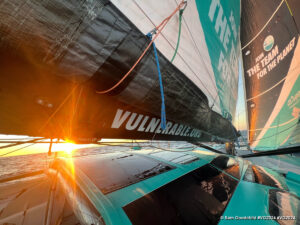
Soloists Descend South with Vendée Globe Underway
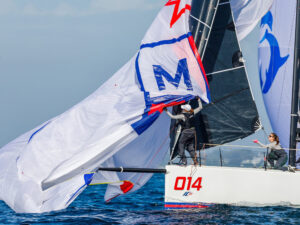
New York YC Launches International Women’s Championship
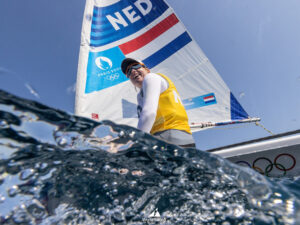
Bouwmeester, Botin and Trittel Selected Sailors of the Year
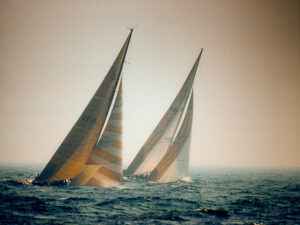
America’s Cup 1983: Wrong Horse For the Course
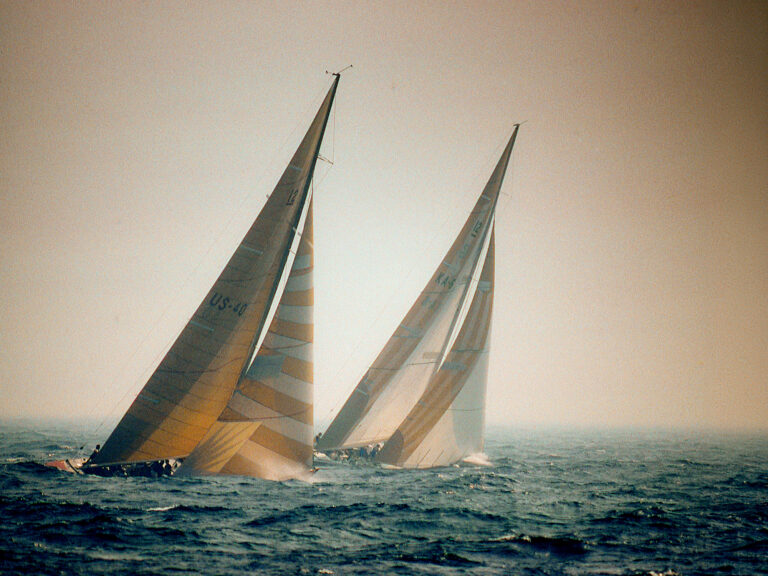
Taken For a Ride on The AC75
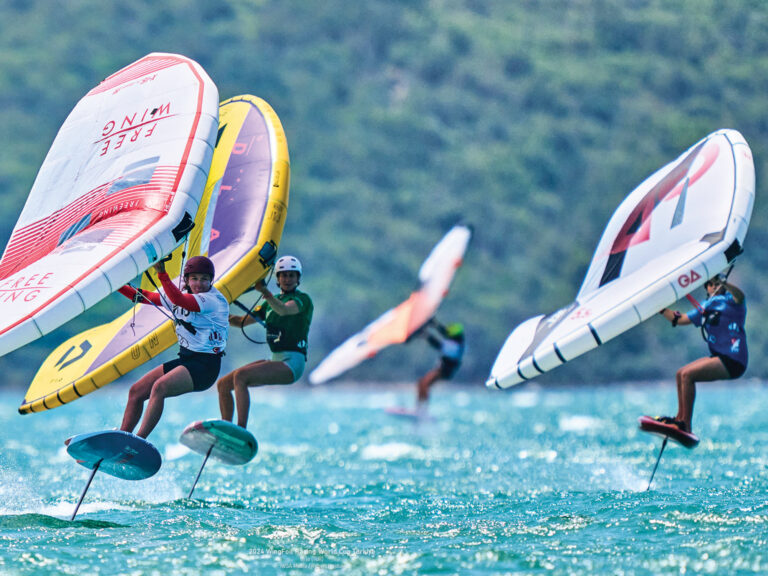
Wingfoiling Racing Beginner Basics
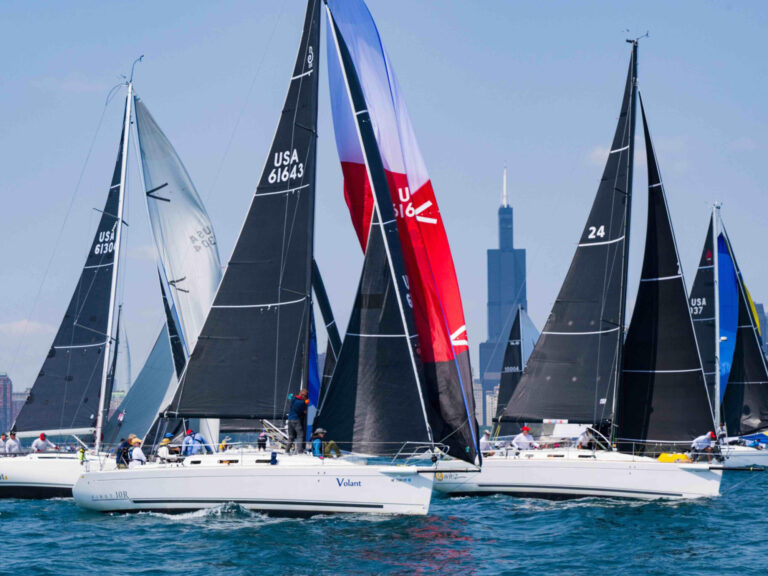
Open Invitation for Chicago YC’s Mac Race

- Digital Edition
- Customer Service
- Privacy Policy
- Terms of Use
- Cruising World
- Sailing World
- Salt Water Sportsman
- Sport Fishing
- Wakeboarding
